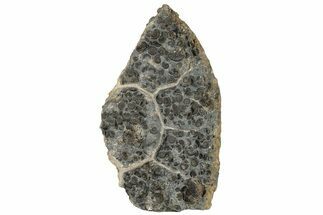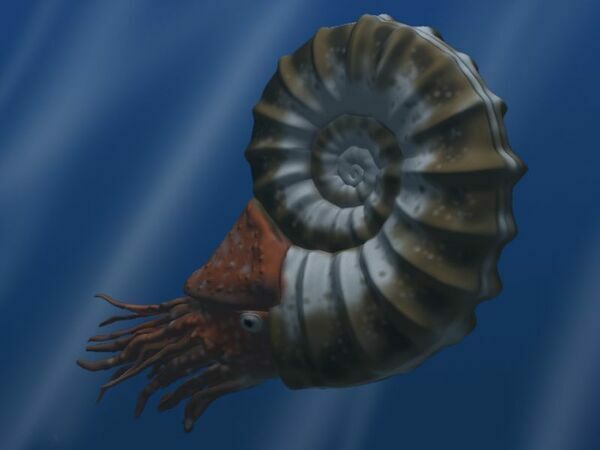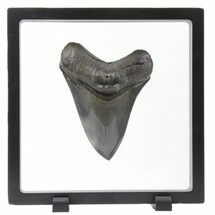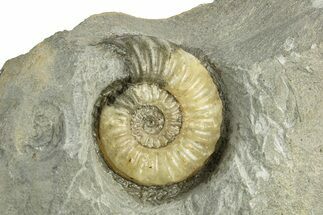This Specimen has been sold.
3.1" Polished Ammonite (Promicroceras) Slice - "Marston Magna Marble"
This is a polished slice of rock containing many small ammonite fossils, often referred to as "Marston Magna Marble". The ammonites are of the species Promicroceras marstonense and are Lower Jurassic (~3.100 million years old) in age. This rock is quarried near Marston Magna, Somerset, England and by slicing and polishing it, the beautiful inner chamber detail of the ammonites can be seen.
Both sides of the specimen have been polished to a glossy finish. It comes with an acrylic display stand.
Both sides of the specimen have been polished to a glossy finish. It comes with an acrylic display stand.
About Ammonites
Ammonites were ancient marine cephalopods, similar to today's squids and octopuses, but with a defining feature: their distinctive, tightly coiled spiral shells. These shells, resembling those of modern nautiluses, served as both a protective home and a buoyancy aid, allowing ammonites to navigate the prehistoric seas with ease. First emerging around 240 million years ago in the Triassic Period, ammonites thrived for over 175 million years, adapting through numerous forms and sizes. As predatory creatures, they likely fed on smaller marine organisms, using their tentacles to capture prey. However, their long reign came to an end 65 million years ago at the close of the Cretaceous, coinciding with the mass extinction event that also eliminated the dinosaurs.
Ammonites were ancient marine cephalopods, similar to today's squids and octopuses, but with a defining feature: their distinctive, tightly coiled spiral shells. These shells, resembling those of modern nautiluses, served as both a protective home and a buoyancy aid, allowing ammonites to navigate the prehistoric seas with ease. First emerging around 240 million years ago in the Triassic Period, ammonites thrived for over 175 million years, adapting through numerous forms and sizes. As predatory creatures, they likely fed on smaller marine organisms, using their tentacles to capture prey. However, their long reign came to an end 65 million years ago at the close of the Cretaceous, coinciding with the mass extinction event that also eliminated the dinosaurs.
SPECIES
Promicroceras marstonense
LOCATION
Marston Magna, Somerset, England
FORMATION
Lower Lias, Obtusum Zone
SIZE
3.1 x 2.15", up to .3" thick
CATEGORY
SUB CATEGORY
ITEM
#211365
We guarantee the authenticity of all of our specimens.
 Reviews
Reviews













